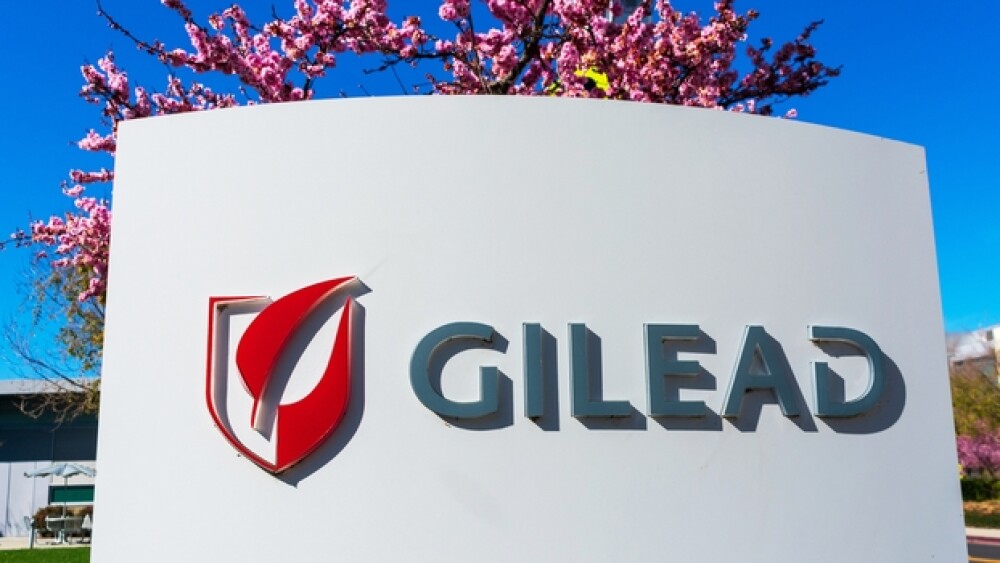One of the promising experimental drugs being tested to treat COVID-19, the disease caused by the novel coronavirus SARS-Cov2-, is Gilead Sciences’ remdesivir.
Michael Vi / Shutterstock
One of the promising experimental drugs being tested to treat COVID-19, the disease caused by the novel coronavirus SARS-Cov2-, is Gilead Sciences’ remdesivir. The company had decided to accelerate its production of the drug based on overwhelming demand. The company indicated it currently has 1.5 million individual doses available, which could potentially be used to treat 140,000 patients. It does not plan to charge for the drug at this time.
Based in Foster City, California, in late February, Gilead announced planned to launch two Phase III clinical trials of the drug in adults diagnosed with COVID-19. The drug is dosed intravenously. The trials were launching in about 1,000 people in Asia. There were already two other clinical trials of the drug in China’s Hubei province led by the China-Japan Friendship Hospital as well as one in the U.S. led by the National Institute of Allergy and Infectious Diseases (NIAID). It is currently in at least five different clinical trials.
Gilead made the announcement on Saturday, April 4. The company stated, in part, “We know the desperate urgency of reaching these patients and believe that the expanded access program will help to accelerate the process. New U.S. sites have been initiated and we are adding more on an ongoing basis. We are also making progress in Europe. Yesterday, the European Medicines Agency announced that it has provided EU member states with recommendations on implementing expanded access programs for remdesivir in their countries.”
Gilead also broadened the expanded access programs, offering remdesivir on an individual compassionate use basis for children and pregnant women. More than 1,700 patients have been treated through those programs to date.
The company cautioned that the drug is still an investigational therapy and has not been approved by any regulatory agencies anywhere in the world. “The safety and efficacy are not yet known so while we feel the greatest sense of urgency in our work with remdesivir, we must take the responsible, ethical approach of determining whether it is indeed a safe, effective treatment.”
The expanded production has a goal of manufacturing enough doses of remdesivir to treat more than 500,000 patients by about October and hopes to have enough supply for another 500,000 patients by the end of 2020.
Typically drug companies only manufacture enough of an experimental drug to cover clinical trials. However, the COVID-19 pandemic is not typical, and Gilead has found remdesivir in high demand worldwide for healthcare providers trying to treat the disease with anything that might work. Remdesivir is not, according to the company, a particular easy drug to manufacture, and has been working since January to expand production and establish a supply chain in support of it.
“Then, as now,” Daniel O’Day, Gilead’s chief executive officer, stated, “there were many unknowns including how long the outbreak would last, at what scale and whether remdesivir is a safe and effective treatment for COVID-19. We made the decision to invest and scale up regardless, because if remdesivir was going to be needed for patients, we had to be ready.”
But one of the challenges, he said, is the amount of time it takes to manufacture the drug. “It is a linear process that requires specialized chemistry and multiple chemical reactions, some of which can take several weeks to complete. It also calls for scarce raw materials as well as sterile manufacturing capabilities with limited global capacity, which are needed to make finished vials ready for administration to patients.”
However, Gilead sciences have found ways to speed production, which has decreased end-to-end manufacturing from about one year to about six months. The company has repurposed some of its facilities to focus on remdesivir and increased its network of external manufacturing partners globally.
A drug dubbed 3A discovered about a decade ago that, in laboratory experiments, was able to fight several different viruses. One was a type of coronavirus. A variation of that, remdsivir, was tested for several viruses, including in the outbreaks of SARS and MERS, but the outbreaks eventually faded before much development and testing was conducted. One reason remdesivir is able to proceed in testing and emergency use so quickly is because clinical trials for other viruses, including Ebola, demonstrated the drug was generally safe for human beings. There is also a significant body of preclinical data, in other words, experiments in Petri dishes and laboratory animals, that suggest the drug might fight coronavirus infections.
The company largely focused on developing remdesivir for Ebola. However, the drug appears to show some efficacy in treating COVID-19, and certainly, the demand for a drug—any drug—that works against the disease is unprecedented. Or, as STAT noted, “There’s nothing like a pandemic to break the emergency glass on all possible options.”
In February, Bruce Aylward of the World Health Organization, said, “There’s only one drug right now that we think may have real efficacy. And that’s remdesivir.”
Other drugs are being tested, and there is at least some anecdotal evidence that malaria drugs chloroquine and hydroxychloroquine, along with an antibiotic, azithromycin (Z-Pak), may be helpful, and are being tested in clinical trials, and used off-label to treat COVID-19.





